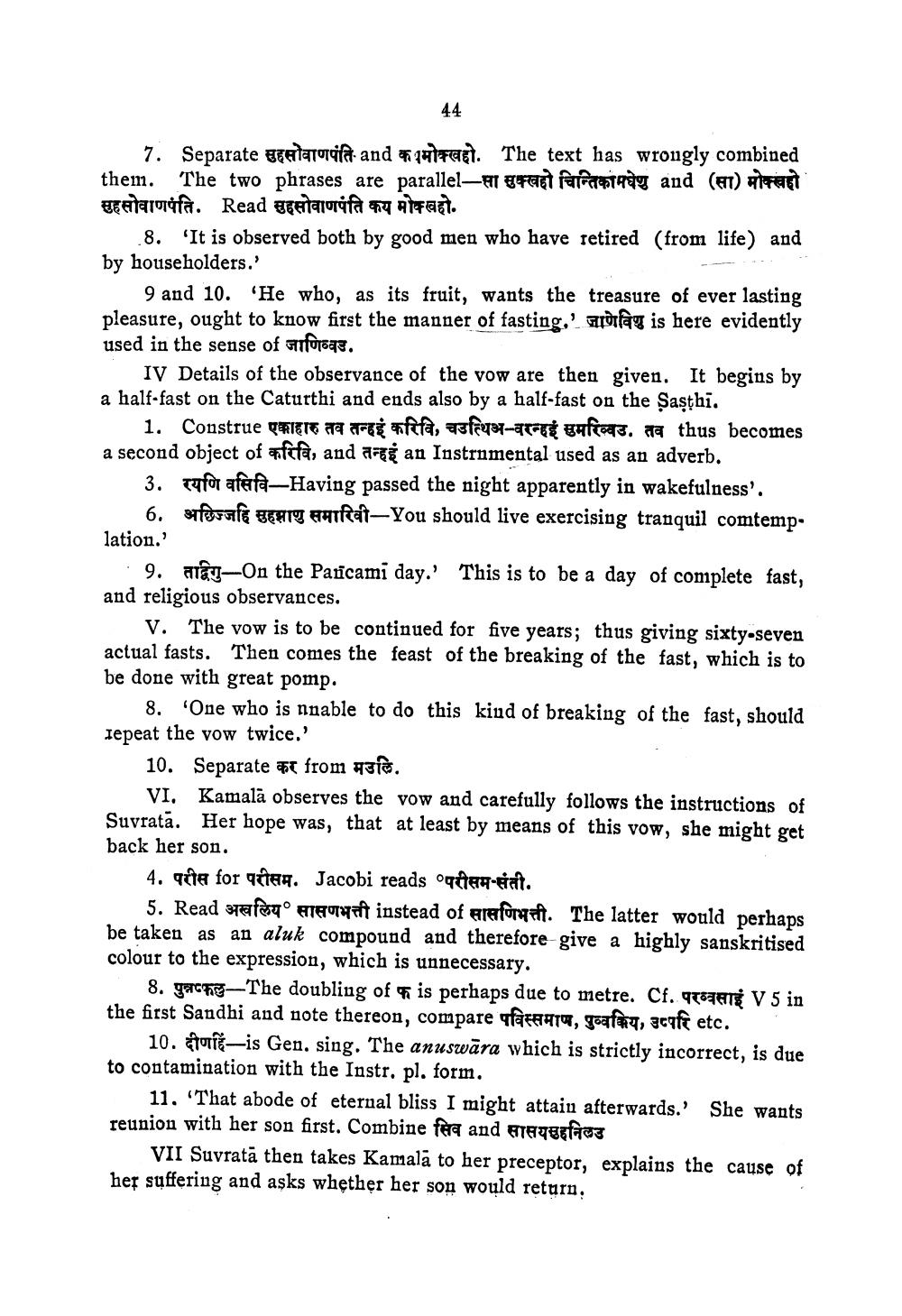________________
44
them.
7. Separate सुहसोवाणपंति and क मोक्खहो. The text has wrongly combined The two phrases are parallel - सा सुक्खहो चिन्तिकामधेश and (सा) मोक्खो सुहसोवाणपंति. Read सुहसोवाणपंति कय मोक्खहो.
8. 'It is observed both by good men who have retired (from life) and by householders.'
9 and 10. 'He who, as its fruit, wants the treasure of ever lasting pleasure, ought to know first the manner of fasting.' aag is here evidently used in the sense of जाणिव्वड.
IV Details of the observance of the vow are then given. It begins by a half-fast on the Caturthi and ends also by a half-fast on the Saṣṭhi.
1. Construe एकाहारु तव सन्हईं करिवि, चउत्थिभ-वरन्हई सुमरिव्वउ तव thus becomes
a second object of affa, and ag an Instrumental used as an adverb.
3. for afafa-Having passed the night apparently in wakefulness'. अछिज्जद्दि सुहझाणु समारिवी - You should live exercising tranquil comtemp
6.
lation.'
9. -On the Pañcami day.' This is to be a day of complete fast, and religious observances.
V. The vow is to be continued for five years; thus giving sixty-seven actual fasts. Then comes the feast of the breaking of the fast, which is to be done with great pomp.
8. 'One who is nnable to do this kind of breaking of the fast, should Iepeat the vow twice.'
10. Separate from
.
VI. Kamalā observes the vow and carefully follows the instructions of Suvrata. Her hope was, that at least by means of this vow, she might get back her son.
4. परीस for परीसम. Jacobi reads परीसम-संती.
5. Read अखलिय° सासणभत्ती instead of सासणिभत्ती. The latter would perhaps be taken as an aluk compound and therefore give a highly sanskritised colour to the expression, which is unnecessary.
8. gan-The doubling of is perhaps due to metre. Cf. V 5 in the first Sandhi and note thereon, compare पविस्समाण, पुव्वकिय, उपरि etc.
10. -is Gen. sing. The anuswara which is strictly incorrect, is due to contamination with the Instr. pl. form.
11. "That abode of eternal bliss I might attain afterwards.' reunion with her son first. Combine fea and araqeeffos
She wants
VII Suvrata then takes Kamala to her preceptor, explains the cause of her suffering and asks whether her son would return.




